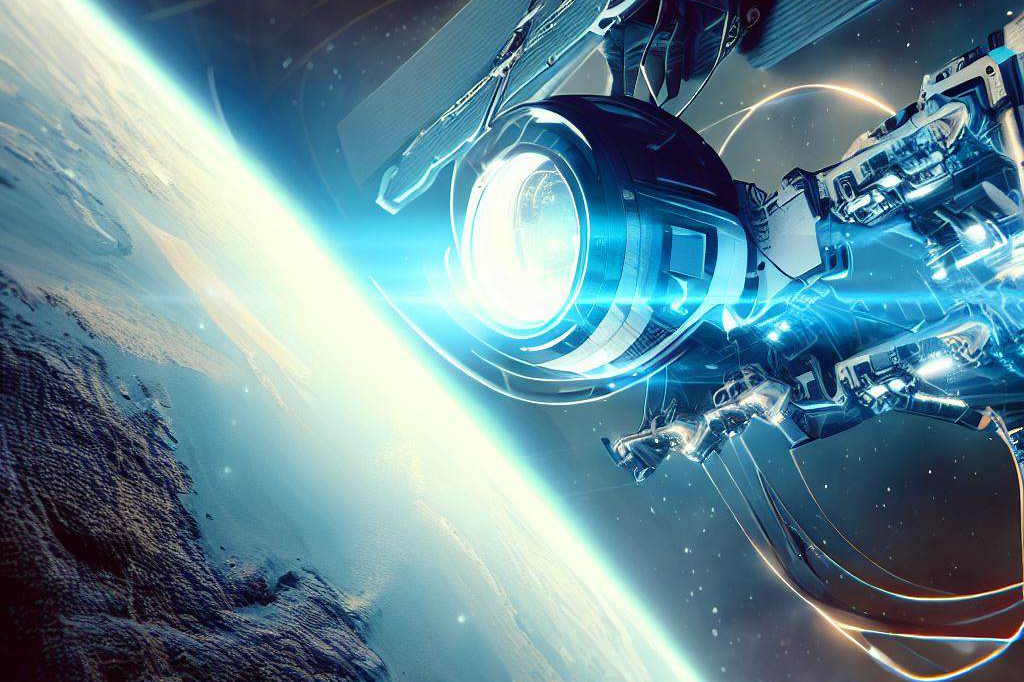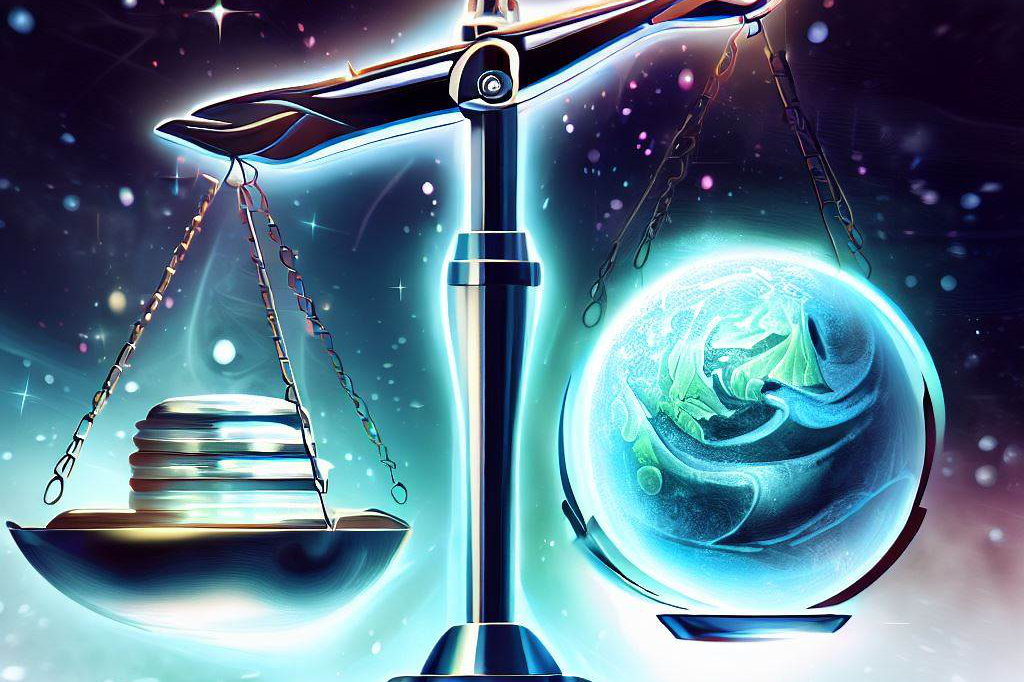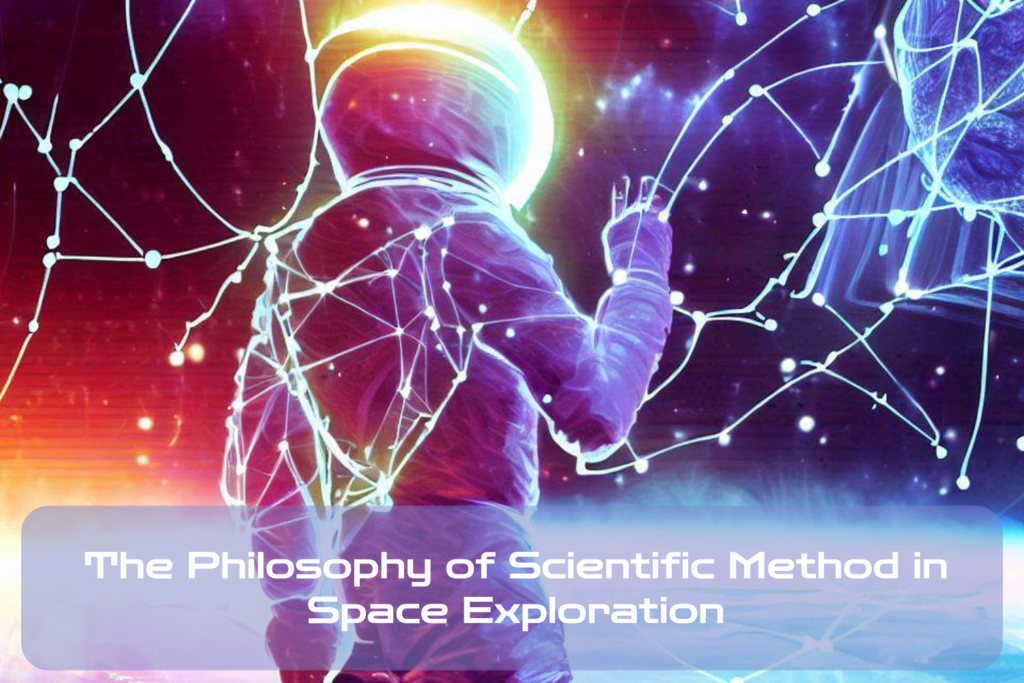The Pursuit of Knowledge in the Cosmos
Why Explore Space?
Space exploration has always been a topic that has captured the imagination of humanity. From looking up at the stars to wondering about other planets, we have always been curious about what exists beyond our world.
This curiosity has led to an entire field of study and research that seeks to answer some of our most fundamental questions about life, the universe, and everything in between. At its core, space exploration is driven by a desire to expand our knowledge and understanding of the universe.
As humans, we are naturally curious about everything around us, and space offers us an endless frontier to explore. By studying space, we can learn more about how the universe was formed and how it works, which can help us better understand our place within it.
The Importance of the Scientific Method

When it comes to exploring space, the scientific method plays a critical role in helping us gain a deeper understanding of what exists beyond Earth’s atmosphere. The scientific method is a structured approach that involves making observations and conducting experiments in order to test hypotheses and theories.
In space exploration specifically, the scientific method allows us to gather data from sources such as telescopes or spacecraft and use this data to develop hypotheses about phenomena observed within the universe. These hypotheses can then be tested through experimentation or further observation using advanced technology.
Without scientific methods guiding our exploration efforts, we would be unable to make meaningful discoveries or advancements within the field of space research. Ultimately, it is this emphasis on empirical evidence and rigorous testing that sets apart true scientific inquiry from mere speculation or conjecture.
The Benefits of Pursuing Knowledge in Space Exploration
The pursuit of knowledge through space exploration offers numerous benefits for humanity as a whole.
For one thing, it allows us to gain new insights into how our universe functions, which can help us develop new technologies and improve existing ones.
This knowledge can also be applied to solve real-world problems related to climate change, energy production, and more. In addition to these practical benefits, space exploration can also inspire future generations of scientists and researchers to continue pushing the boundaries of our knowledge.
The pursuit of knowledge is a fundamental human endeavor that has driven progress throughout history, and space exploration is a key part of this ongoing quest for understanding. By fostering curiosity and promoting scientific inquiry, we can create a better world for ourselves and future generations.
The Scientific Method and Space Exploration

Exploring the Unknown through the Scientific Method
The scientific method is a tried and true process that is used to explore the unknown. It involves making observations, creating theories, testing those theories through experimentation, and then refining them as new information is discovered. This process has been used for centuries in fields such as medicine, physics, and chemistry.
However, it also applies to space exploration. Space exploration is a field that relies heavily on the scientific method.
Scientists use it to better understand our solar system, galaxy, and the universe at large. Through observation of celestial bodies like planets and stars, we develop hypotheses about how they work.
We then test those hypotheses through experimentation by sending probes or rovers to collect data. Once we have enough information, we refine our theories.
Importance of Hypothesis Testing in Space Research
One of the most important aspects of space research is hypothesis testing.
A hypothesis is an educated guess based on existing knowledge that helps scientists make predictions about what they expect to find when exploring a particular area or object in space.
For example, when exploring Mars scientists hypothesized that there might be water on its surface because of certain features seen from orbiting satellites.
To test this hypothesis, they sent several missions over several years with different instruments capable of detecting water molecules or signs of past liquid water flowing on Mars’ surface. This type of hypothesis testing not only helps scientists gather more information about specific phenomena but also greatly contributes to the larger understanding of our universe as a whole by advancing knowledge for future studies.
The Role of Experimentation in Space Research
Experimentation plays a crucial role in space research because it allows us to collect data that would otherwise be impossible through observation alone. Equipment like telescopes may help us learn about distant objects, but by sending probes or rovers, we can gather more accurate and specific data.
For example, the Mars Curiosity rover has been able to take measurements of the planet’s atmosphere, soil composition, and radiation levels on site. This allows scientists to make inferences about Mars’ past and present conditions, as well as its potential habitability for future human explorers.
Experimentation also allows us to test hypotheses in a controlled way, which helps us eliminate alternative explanations for observed phenomena. In turn, this strengthens our confidence in the knowledge that we gain from space exploration through the scientific method.
The Role of Technology in Space Exploration

Overview of Technological Advancements that Have Enabled Space Exploration
The use of technology has been instrumental in enabling space exploration. Humans have been able to explore the universe through the use of telescopes, spacecraft, and satellites. The first major technological achievement was the development of rockets that could travel beyond Earth’s atmosphere.
This made it possible for humans to send spacecraft and probes into space to explore other planets, moons, and asteroids. Another major technological advancement that enabled space exploration was the invention of computers.
These machines allowed scientists to analyze the data collected from their missions in greater detail than ever before. Computers also allowed for more sophisticated navigation systems for spacecraft, making it possible for them to navigate through deep space and return safely to Earth.
How Technology Has Impacted Our Understanding of the Universe
Technology has impacted our understanding of the universe in numerous ways. One example is the use of telescopes which allow us to study objects in deep space such as galaxies, nebulae, and stars. Telescopes can detect light emissions from these objects that are invisible to our naked eyes.
Satellites have also played an important role in expanding our knowledge about the universe. They can collect data on environmental conditions on other planets or moons, which helps us better understand how they function.
In addition, technology has given us a better understanding of how gravity works – a fundamental force that governs many aspects of our universe. Without technology such as accelerometers and gyroscopes onboard spacecraft, we would not be able to accurately measure changes in gravitational forces over time.
Implications for Future Space Exploration
Continued technological progress will undoubtedly impact future efforts towards exploring outer space. Future advancements could include more powerful propulsion systems for spacecraft, which would enable much faster travel across vast distances within our solar system.
Another area where technology could play a vital role is in the development of life support systems that can sustain humans for longer periods in space. As we seek to expand our presence beyond Earth, it will become increasingly important to develop sustainable and self-sufficient habitats for humans.
Technology has been instrumental in enabling space exploration and has significantly impacted our understanding of the universe. It will continue to drive future progress towards unlocking the secrets of deep space as we strive towards greater exploration and discovery.
Ethics in Space Exploration: Balancing Scientific Discovery with Environmental Impact

The exploration of space has not been without ethical considerations. While scientific discoveries and advancements have been made, there is also the potential for environmental harm. The question of balancing scientific discovery with environmental impact is one that requires careful consideration.
The Environmental Impact of Space Exploration
There are several environmental concerns associated with space exploration. One of the most significant is the amount of debris and waste that is left in space after missions are completed. These objects can continue to orbit Earth or other celestial bodies, posing a risk to future missions and satellites.
Additionally, the launch and propulsion systems used to get spacecraft into orbit emit harmful pollutants into the atmosphere. Another concern is how space exploration impacts life on Earth.
The resources used to fund space programs could potentially be used for other important causes, such as addressing climate change or poverty. It’s important to consider whether investing in space exploration is worth diverting resources from other pressing issues.
Balancing Scientific Discovery with Environmental Impact
Finding a balance between scientific discovery and environmental impact requires careful planning and consideration from all parties involved in space exploration – from scientists and engineers to policymakers and stakeholders. One way to reduce the impact of space exploration on the environment is through sustainable practices, such as using renewable energy sources for launches and developing technologies that produce less waste.
Additionally, it’s important to approach each mission with a clear understanding of its purpose and potential impact on the environment. This includes conducting thorough risk assessments before launching any mission, taking measures to prevent contamination of other planets or moons by Earth-based organisms, and adhering to international agreements on outer space activities.
The Ethics of Space Exploration
The ethics surrounding space exploration are also complex. There are questions around who has the right to explore and exploit celestial bodies, as well as how we should treat any potential life that may be discovered. For example, the Outer Space Treaty of 1967 prohibits countries from claiming ownership of celestial bodies, but there is debate over whether this means that private companies can’t claim ownership or resources found on these bodies.
Additionally, there are concerns over how we would interact with any potential extraterrestrial life forms that may be discovered. There is a need to consider the rights of these organisms and how we might coexist with them.
Ultimately, it’s important to approach space exploration with a sense of responsibility and consideration for all potential impacts – both on Earth and in space. By doing so, we can continue to pursue knowledge of our universe while also being good stewards of our planet and its inhabitants.
The Future of Space Exploration

Predictions for Future Advancements in Space Technology
It’s an exciting time for space exploration, with new technologies being developed every day. One of the most anticipated advancements is the development of reusable rockets.
This will not only make space travel more affordable but also increase the frequency of launches. In addition to this, there has been a lot of talk about moon bases and even Mars colonies becoming a reality sometime in the near future.
These will require significant technological advancements in areas such as life support systems and sustainable resources. Another area where we can expect significant progress is in the field of robotics.
As we explore deeper into space and encounter more challenging environments, robots will become essential tools for conducting research and collecting data. Microbots that are capable of exploring small spaces and conducting repairs could revolutionize how we maintain spacecraft, while deep space exploration vehicles could allow us to reach even further into our solar system.
Potential Discoveries that Could be Made Through Continued Space Exploration
Space exploration has already yielded some incredible discoveries, including insights into how stars form, how galaxies evolve, and even evidence of water on Mars. However, there is still so much we don’t know about our universe, and continued exploration offers numerous exciting possibilities. One area that holds great promise is exoplanet research.
With new telescopes like the James Webb Space Telescope, we are able to detect planets around distant stars much more easily than before. This will help us learn more about the characteristics of these planets, including their atmospheres, and whether they may support life as we know it.
It’s worth noting that many breakthroughs in science come from unexpected places or serendipitous discoveries. While there are certain things that scientists hope to find through space exploration, some of the most important insights might come from unexpected observations or phenomena that haven’t even been imagined yet.
Final Thoughts

Throughout history, humans have been driven to explore and understand the universe around us. From the first telescopes to current space missions, we have made incredible strides in our understanding of the cosmos. The pursuit of knowledge through scientific methods has been at the forefront of this progress.
By using hypothesis testing, experimentation, and observation, we have been able to uncover a wealth of information about our universe. Space exploration has allowed us to study celestial objects up close and personal.
By collecting data through unmanned probes and rovers, we can gain insights into everything from planetary geology to distant galaxies. These missions have led to discoveries that have fundamentally changed our understanding of physics, chemistry, biology, and astronomy.
As we look towards the future, there is much more left for us to discover. Continued efforts in space exploration will be crucial for furthering our understanding of not only our own planet but also the entire universe around us.
By pursuing knowledge through scientific methods in space exploration, we are not only satisfying our natural curiosity but also improving life here on Earth.

C M, a seasoned editor, journalist, and consultant, is deeply fascinated by the convergence of technology, space, and the future of humanity.
With a particular interest in transhumanity, futurology, and the philosophical and ethical dimensions of these domains, C M serves as the lead contributor to SpaceSpotlight and TranscendSphere.
When not penning insightful articles on these rapidly evolving fields, C M indulges in their love for podcasts and books, proudly embracing their status as a ‘Happy Nerd Extraordinaire!’



